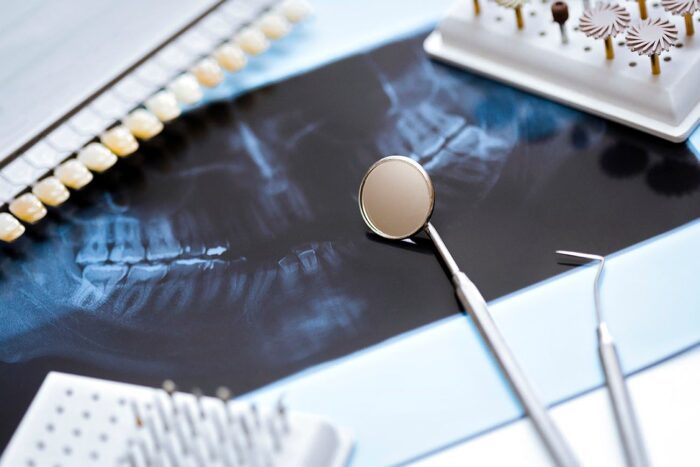The temporomandibular joint, or TMJ, is a crucial part of your jaw that allows you to chew, speak, and move your jaw effortlessly. However, when this joint goes awry, it can lead to a condition known as TMJ disorder.
When you develop issues with this joint, it can cause pain and discomfort. Additionally, the function of your jaw can deteriorate over time. However, there are some simple steps you can take to keep TMJ disorder at bay.

The TMJ Tale – What Exactly is TMJ Disorder?
The TMJ acts like a hinge connecting your jawbone to your skull, allowing for smooth movements during various activities. TMJ disorder occurs when this joint malfunctions. This causes pain and discomfort in the jaw, face, and surrounding areas.
The exact causes can be complex. However, factors such as jaw misalignment, stress, or arthritis may contribute to the development of TMJ disorder.
The Warning Signs
Early detection is key when it comes to managing TMJ disorder. If you experience persistent jaw pain or clicking and popping sounds when you chew or speak, you may need to seek treatment. Additionally, headaches or difficulty opening and closing your mouth means that it’s time to pay attention. Ignoring these warning signs may lead to worsening symptoms and potential complications.
Stress Less, TMJ More
Stress is a common culprit in developing or worsening TMJ disorder. When we are stressed, we often clench our jaws or grind our teeth. As a result, this places additional strain on the TMJ. Over time, this can lead to TMJ disorder. You can add stress management techniques, such as deep breathing or meditation. These may be crucial in preventing the onset or progression of TMJ issues.
Protecting Your Pearly Whites
Misaligned teeth can contribute to TMJ disorder by affecting the way the jaw functions. If your teeth don’t align properly, it can lead to an uneven distribution of pressure on the TMJ. As a result, this can cause discomfort and potential joint dysfunction. Orthodontic interventions, such as braces or aligners, can help correct misalignments and get rid of stress on the TMJ.
The Daily Grind
Bruxism, or teeth grinding, is another common factor linked to TMJ disorder. Many people grind their teeth, especially during sleep. The continuous grinding places stress on the TMJ and can be a major factor in TMJ disorder. Furthermore, it can increase your chances of broken or chipped teeth. Using a nightguard can help mitigate the effects of bruxism and protect your teeth and jaws.
Balanced Bites
Chewing gum excessively or favoring one side of your mouth while chewing can disrupt the balance of your jaw movements. This can potentially lead to TMJ issues. Being mindful of your chewing habits and practicing balanced jaw movements can help the health of your jaw. You should avoid nail-biting or chewing on non-food items. This can also play a role in preventing TMJ disorder.
